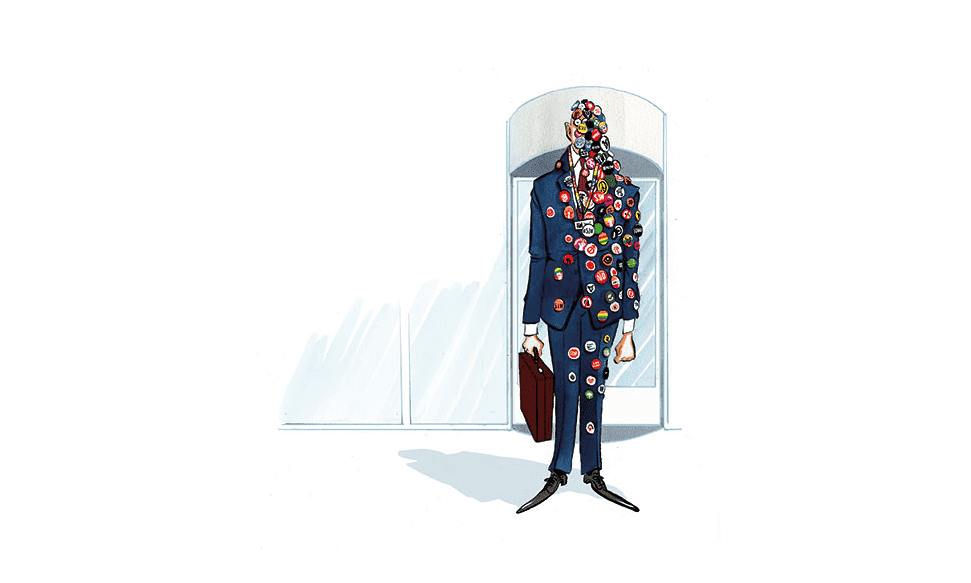There are signs that woke capitalism is on the way out. Unilever, purveyor of the most right-on brand of the moment, Ben & Jerry’s ice-cream, will no longer ‘force fit’ all of its brand with a social purpose, following a backlash over the company’s ‘virtue-signalling’.
Hein Schumacher, who became Unilever’s chief executive in July, has said that for some brands, giving them a social or environmental purpose ‘simply won’t be relevant or it will be an unwelcome distraction.’ He added: ‘I believe that a social and environmental purpose is not something that we should force fit on every brand.’
This report, in today’s Daily Telegraph, marks a significant U-turn for the manufactures of Hellmann’s mayonnaise, Marmite spread and Dove soap. It’s a reversal of the stance adopted by Schumacher’s predecessor, Alan Jope, who vowed to sell products that ‘are not able to stand for something more important than just making your hair shiny, your skin soft, your clothes whiter or your food tastier.’
Unilever under Jope was selling values, not just products. This direction didn’t please all. In January last year, the investor Terry Smith launched an attack on Unilever’s obsession with fashionable cause at the expense of financial performance. ‘A company which feels it has to define the purpose of Hellmann’s mayonnaise has, in our view, lost the plot’. Smith’s attack coincided with a survey of 2,000 adults by Hanbury Strategy and State Data Strategy, in which 56 per cent of respondents said that businesses did not reflect their priorities. Only 9 per cent said that businesses in Britain shared their values. Almost 70 per cent said bosses should focus less on politics and more on improving customer service.
Corporate virtue-signalling as become a source of intense irritation for many consumers
Schumacher’s intervention comes as Unilever’s turnover fell by 3.8 per cent in the third quarter to €15.2 billion and sales volumes dropped by 0.6 cent. And his announcement also comes at a time when companies have less room to indulge in posturing – straightened times in which the imperative has shifted from ‘environmental, social and governance’ (ESG) and back towards profits and efficiency. For instance, Shell and BP have recently re-focussed on their oil and gas efforts following investor frustration with the cost and lack of profits from renewable energy initiatives.
Rising energy costs, soaring inflation, the war in Ukraine and now conflict between Israel and Hamas have concentrated minds. ‘There has definitely been a rowing back on ESG’, Ashley Kelty, head of oil and gas research at Panmure Gordon, told the Telegraph this week. ‘People want companies to stick to what they are supposed to be doing. Shareholders are saying: “We don’t care which causes you support. We want to make money”.’ A study out this month by the index provider Scientific Beta scuppers the ideal that applying ESG principles will result in better-run, more competitive companies. They found that returns from ‘sustainable’ investing are no higher, and sometimes even weaker.
If companies are becoming more responsive to the needs and demands of their shareholders, they must be surely be wary, too, of the restive feelings of their customers. Corporate virtue-signalling as become a source of intense irritation for many consumers, as the likes of Nike, Gillette of Apple have found out over the years.
It now transpires – finally – that voguish politicking can be very bad for business. In spring the makers of Bud Light, favourite tipple of the American blue-collar classes, released a promotional video which featured the transgender influencer Dylan Mulvaney. Soon after, conservative voices on social media called for a boycott of the product. And it worked.
In August Bud Light’s parent company, Anheuser-Busch, announced losses of $395 million in North American revenue between April and June, with the beer maker’s revenue in the US dipping 10.5 per cent compared to the previous year, losses attributed to the backlash and boycott of Bud Light. ‘People, basically, they want to enjoy their beer without the debate’, conceded Anheuser-Busch CEO Michel Doukeris.
Unilever won’t be shedding all of it political pretensions. Schumacher has said that some brands will remain ‘purpose-led’, and that it was logical for Dove soap to convey environmental purpose. Dove will continue to promote the idea of ‘real beauty’ in its adverts that feature women with different body types. Ben and Jerry’s ice-cream, forthright on the environment, defending LGBT and refugee rights, also still had a ‘clear purpose’. He said: ‘Are we giving up on purpose-led brands? The answer is no. However, I also believe a social or an environmental purpose is not something that we should force fit on every brand.’
It seems that big business is at last discovering a sense of perspective.






Comments